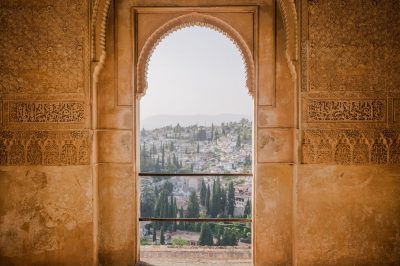Do you want to understand Surah Yusuf at a deeper level?
Get to Know a Surah of the Quran is a new series of videos brother Nouman Ali Khan presented in 2016 during the month of Ramadan.
The following is a summary of some of the most important topics brother Nouman mentioned in this fourth episode.
Introduction
It is one of the most profound and unique Surahs in the Qur’an, where the entire narrative is dedicated to one story.
The Qur’an usually has multiple stories in one Surah, but this time it is a dedicated discourse, beginning to end, in chronological order from one individual, and that is Yusuf, peace be upon him, along with his brothers.
This is a Surah where you can literally spend years taking up a passage and deciphering how many gems of wisdom are embedded, literally ayah by ayah, phrase by phrase.
It’s absolutely overwhelming and a profound study that has an incredible amount of insight.
The first thing, from a contemporary point of view, about this Surah is that especially students of psychology and sociology should pay close attention to this Surah.
Aleem, Hakeem
The second observation is the names of Allah mentioned in this Surah, including a name which is not used elsewhere in the Qur’an (Ghaleb ala Amrihi) i.e. Allah is Dominant over His affairs, and (Lateef lima Yashaa’) i.e. Subtle in whatever He does. These two names are balanced with two other names Hakeem (The All-Wise), and Aleem (The All-Knowing).
At the start of the Surah, Yusuf tells his father of a dream he saw, and his dad is full of hope, and he mentions that Allah will fulfill His favor upon you, and will fulfil His favor upon the family of Yacoub.
{And thus will your Lord choose you and teach you the interpretation of narratives and complete His favor upon you and upon the family of Jacob, as He completed it upon your fathers before, Abraham and Isaac. Indeed, your Lord is Knowing and Wise.} (12:6)
Allah is Knowing (Aleem), and Wise, He has all the Wisdom (Hakeem).
So Aleem Hakeem first occur in the context of optimism.
The second time, (later on in the Surah) when Aleem Hakeem is mentioned, so many bad things have already happened; Yusuf has been kidnapped, he’s been gone for years, there is a drought, they don’t have any food, …
The sons then go to Egypt to find food, and they don’t even know the minister they are talking to is their actual own brother.
Yusuf then actually plots to have one of them, Benjamin, arrested and withheld for other reasons.
Now they come back to their dad a second time empty-handed without a son; first they took Yusuf, now they took Benjamin.
So this father has received bad news after bad news, and now his second son is gone, but Yacoub says:
{[Jacob] said, “Rather, your souls have enticed you to something, so patience is most fitting. Perhaps Allah will bring them to me all together. Indeed it is He who is the Knowing, the Wise.} (12:83)
So he’s saying, Allah knows everything, He is All-Wise. In other words, he trusts Allah in the worst of situations, and knows that Allah has wisdom in how He does things.
And seeing how He does things, I don’t understand His plan, but He does have a plan because He is Wise.
And I know what I know, but there is a lot I don’t know, and only Allah knows. So I’m just going to be quiet and trust Allah.
So the second time Aleem Hakeem comes, it teaches us trust in bad times.
The first time, He taught us optimism. We should be optimistic about our future. And when things are out of control, we should rely on Allah’s Knowledge and Wisdom.
The Reunion
And finally, amazingly enough, the reunion happens.
Everybody is together, Yusuf, peace be upon him, puts his parents on the throne, there is a massive celebration, and what does Yusuf say?
{… Indeed, my Lord is Subtle in what He wills. Indeed, it is He who is the Knowing, the Wise.} (12:100)
He is looking back now, how subtle and how invisible Allah’s plan was all along, and how amazingly by the way if Yusuf was not in prison.
Think of it: If Yusuf was not in prison, and he did not meet those two prisoners, then a drought would have happened, regardless, but there would not have been someone to give the suggestion that Yusuf gave.
Hundreds, if not hundreds of thousands of people would have starved to death if Yusuf did not go through what he went through.
And it included the survival of his own family, too.
His own brothers and their families, his own father and his mother, they would have starved to death, if this did not happen.
That was just one of the things that were going on in the background; there was a greater good that needed to be accomplished.
And as a result, he is able to sponsor all of his family to Egypt, and they settle in Egypt, which means the Children of Israel now live in Egypt, and the saga of the Egyptians and the Israelites begins.
And this will eventually lead to the coming of Musa, peace be upon him…
So all of this begins with the trials of Yusuf, peace be upon him.
If that didn’t happen, none of this would have happened.
Allah Knows.
But Yusuf just looks back at his life, and says Allah knew all along.
Allah had reason all along, and now I see it.
In other words, the third time you use Al-Aleem Al-Hakeem, is when you look back at your life and you appreciate the wisdom that at the time you could not appreciate.
And this happens in your life and in my life all the time.
There are bad things we go through and we ask why is this happening? But at the time you trust Allah and say Allah is Wise, there is a plan.
But years later you look back and you say if that bad thing did not happen, if I did not lose my job over there, I would have never got this new job, I would have never moved here, I would have never made these friends…
So all the good that happened in my life was a result of one bad experience that Allah put me through.
And that can happen. It’s happened to me, and this is the idea of Aleem, Hakeem being a sentiment of gratitude.
For more details on this Surah explained by brother Nouman, and to watch the full episode, please click here.
(From Discovering Islam archive)



